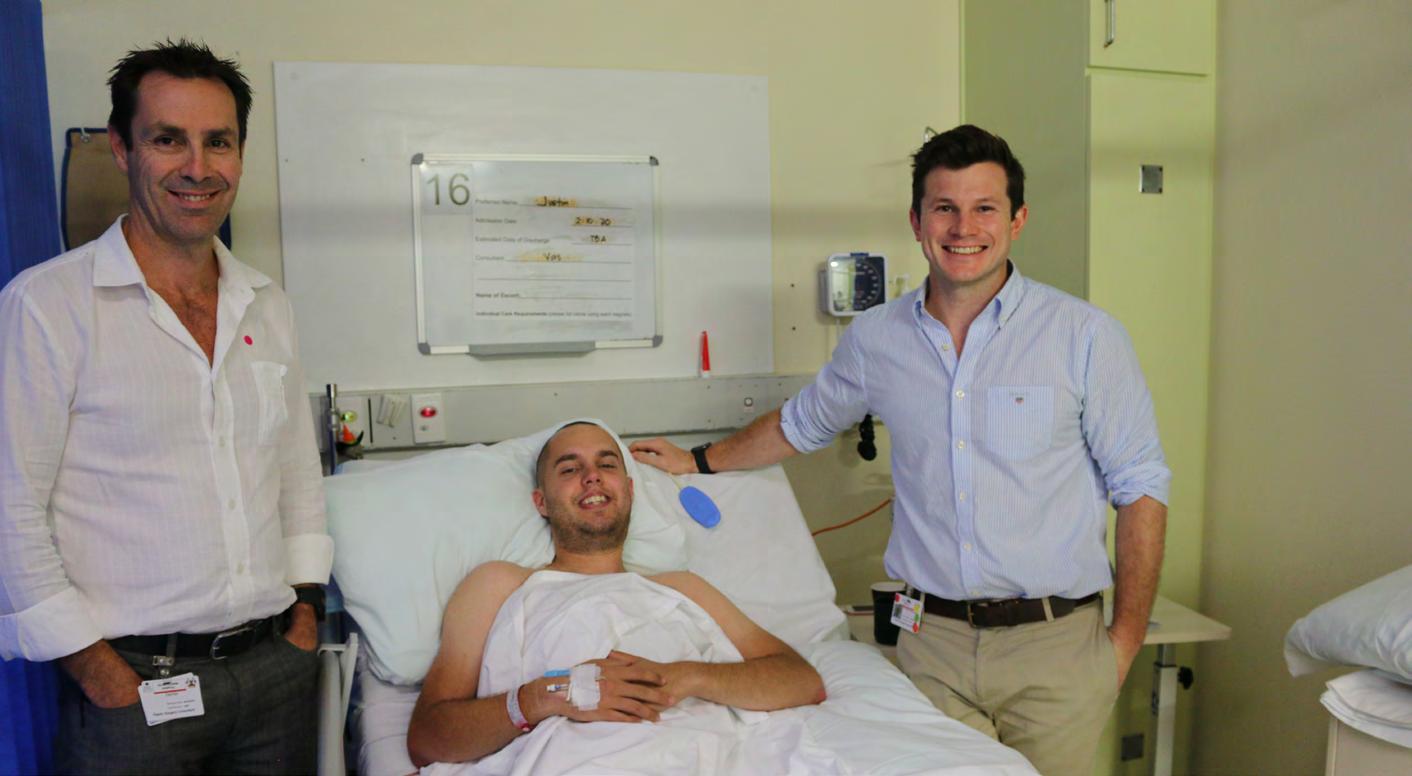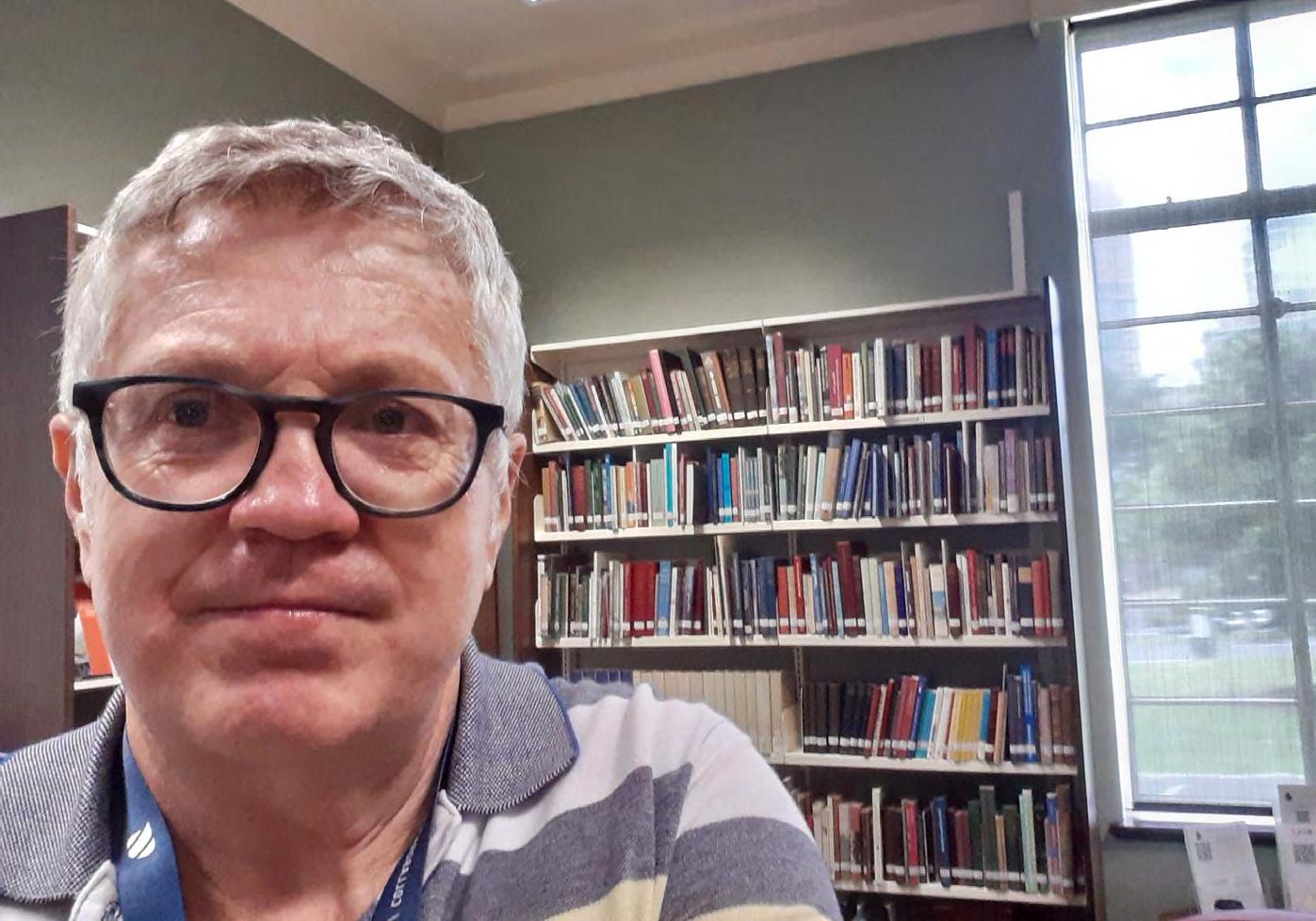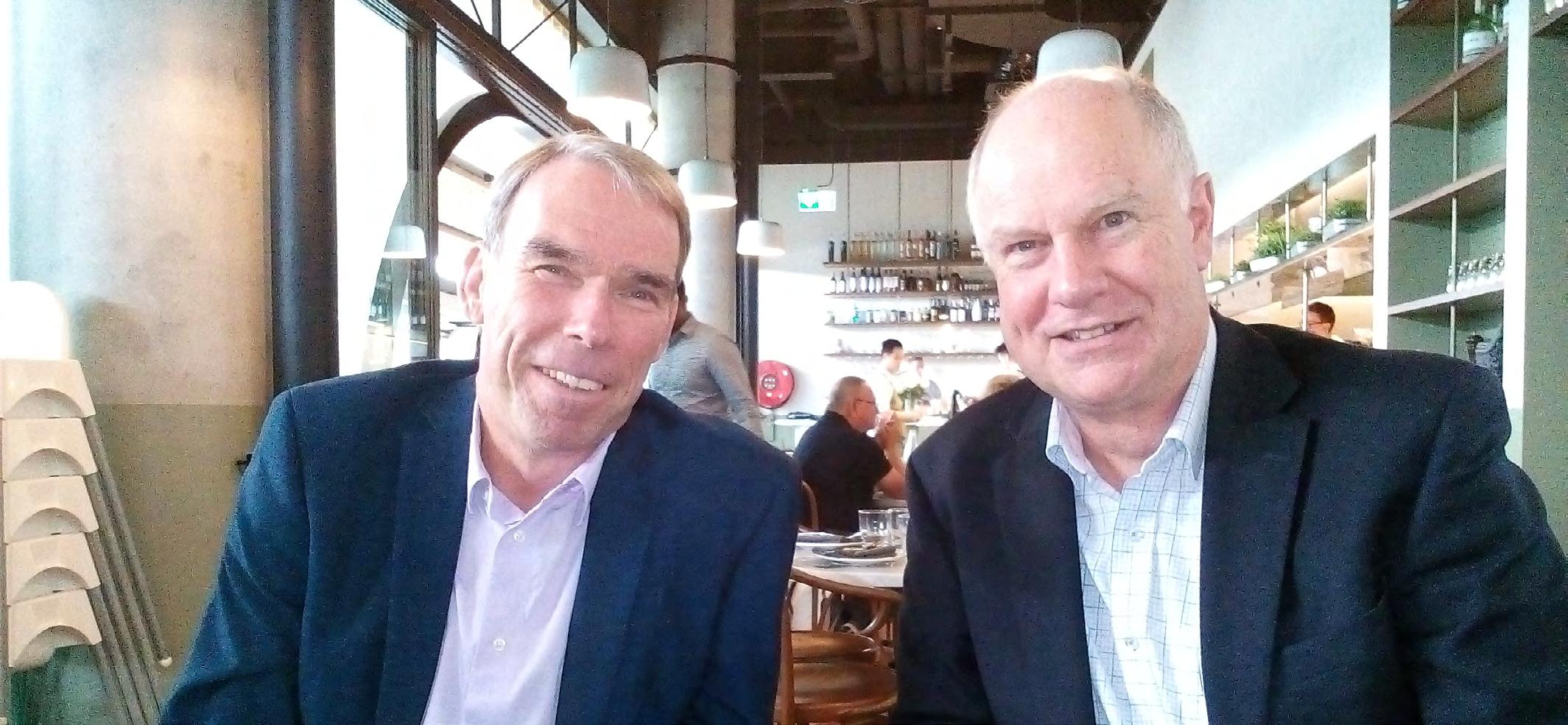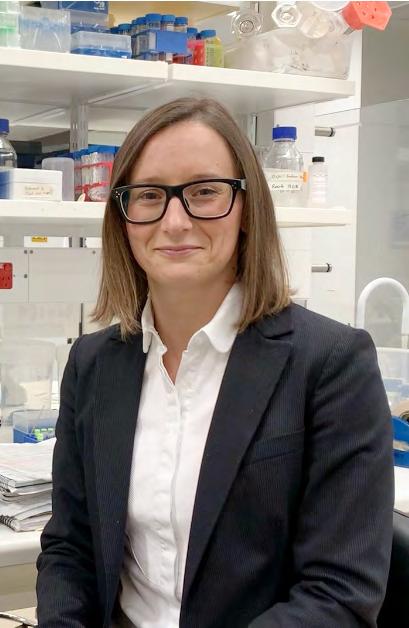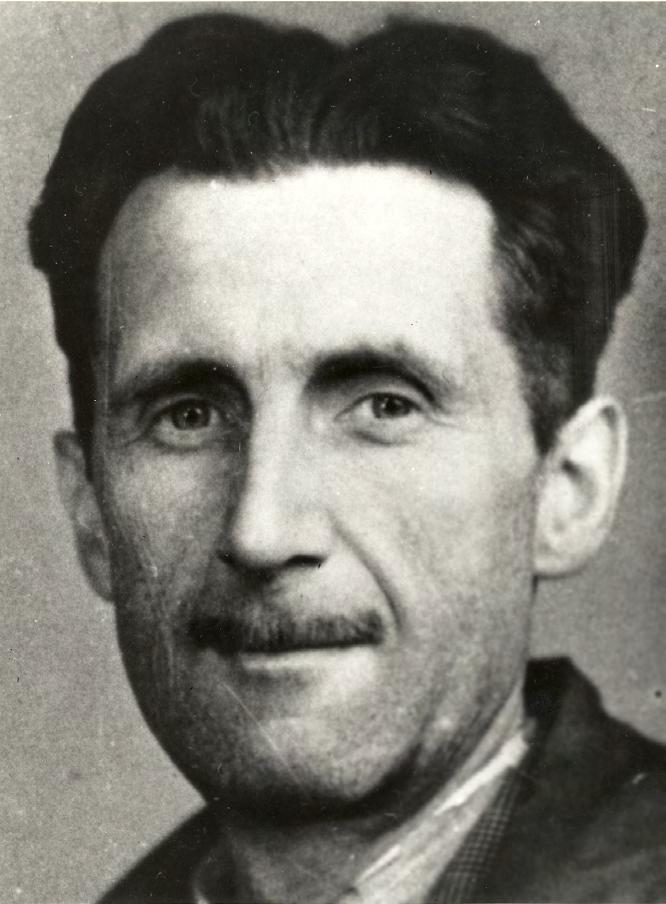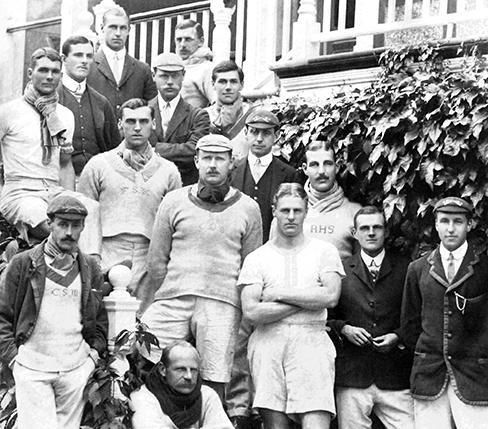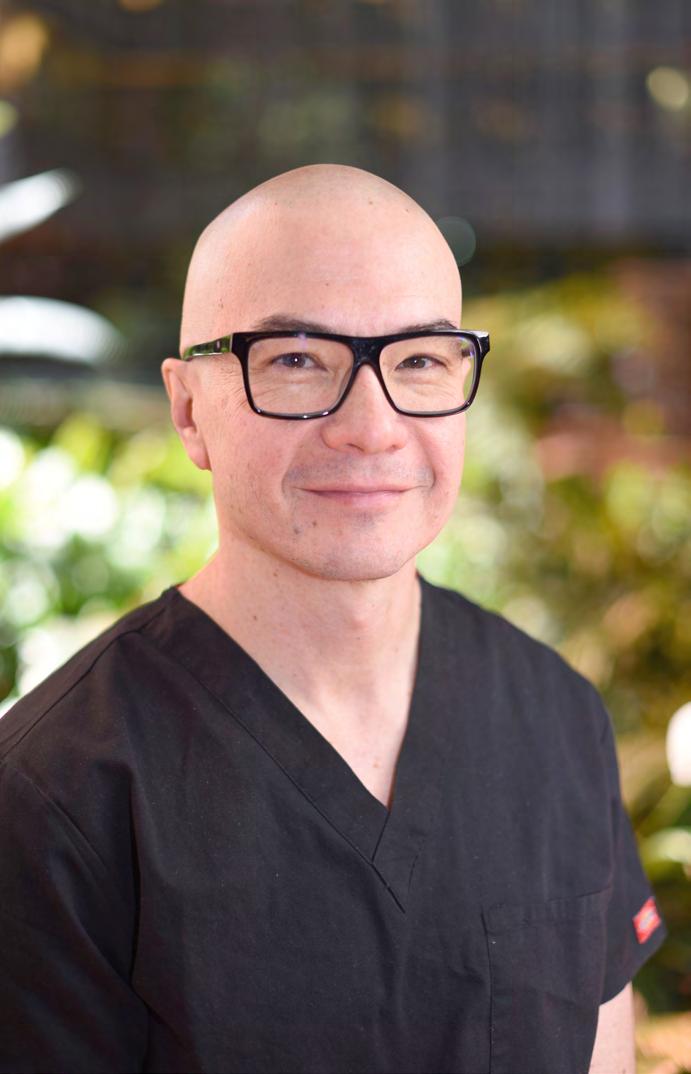
12 minute read
New South Wales Surgeons’ Month
Leadership in a time of crisis
‘Leadership in a time of Crisis’ was the theme for New South Wales (NSW) surgeons as they joined together throughout November to celebrate the annual NSW Surgeons’ Month. The event, now in its seventh year, was initially designed to provide learning opportunities for surgeons and other medical professionals. Over the years, it has grown to highlight the diversity within surgery and medicine. Despite the many challenges posed by COVID-19, the Royal Australasian College of Surgeons (RACS) NSW Chair, Associate Professor Payal Mukherjee, said the committee was determined the event should go ahead, albeit in a slightly modified format. “Surgeons’ Month has grown every year since its inception. When I took over as Chair of the NSW State Committee, I had big plans for how I wanted to continue to shape this event and expand its profile. But COVID-19 threw all those plans in to disarray, and for a long time it looked as if we would have to cancel it altogether,” Associate Professor Mukherjee said. “It has been a tough year for everyone in our community, including medical professionals, who have been at the front line, not only during the pandemic, but also during the devastating summer bushfires. I have been very proud of the way health workers have responded and, in the case of surgery, have worked tirelessly to alleviate the pressures that have been placed on the system. “I have been touched by the many examples of leadership that I have personally witnessed, and it seems only fitting that we recognised and celebrated this. During Surgeons’ Month several of our colleagues were presented with awards for their outstanding contributions to surgery and to our community over many years.” Associate Professor Mukherjee said that while the pandemic had created challenges for organisers, it had also provided an opportunity to consider alternative models. “For the first time we offered hybrid events where people could attend either virtually or in person. This isn’t something we have previously considered, but it has been really exciting and has helped us to connect with a broader audience, particularly our rural colleagues,” she said. “It is really important we continue to do this in future years. I also think it is vital to keep a face-to-face element as well. As much as I have enjoyed the convenience of virtual meetings and communications, the experience of gathering together is irreplaceable.” This year Surgeons’ Month included five events in total. These were: • Preparation for Surgical Education and
Advertisement
Training Workshop • Younger Fellows Preparation for
Practice Workshop • Australian Defence Force and Surgery
Dinner with guest speaker Georgeina
Whelan AM CSC and Bar, who is a retired Army brigadier, and current Commissioner of the Australian Capital
Territory Emergency Services Agency. • Women in Surgery with guest speakers the Minister for Women Bronwyn
Taylor and Carrie Marr, CEO of the
Clinical Excellence Commission • Surgeon’s Evening with guest of honour Secretary of NSW Health,
Elizabeth Koff. During the month several awards were presented to NSW members to recognise their contribution to surgery and the community over a number of years. The award recipients were presented as part of Surgeons’ Evening, where they were honoured in front of family, friends and colleagues. Among them was Professor Jonathan Clark AM, who delivered the Graham Coupland Lecture and was also presented with the Graham Coupland Medal. Professor Clark is a head and neck surgeon and the Director of Head and Neck Cancer Research at Chris O’Brien Lifehouse. He was also recently appointed as the inaugural Lang Walker Family Foundation Chair in Head and Neck Cancer Reconstructive Surgery and has many other positions and achievements to his name. He described receiving the award as a privilege. “Honestly, it is a bit daunting,” he said. “Especially after looking through the list of previous recipients. There are so many other surgeons also doing remarkable clinical work and research that would have been very deserving.” Despite his many achievements and accolades, Professor Clark said he
found it difficult to identify a particular career highlight and that it was the immense satisfaction of successful operations that were most memorable and motivating to him. “Registrars often ask me ‘What is your favourite operation?’ My response is always: ‘One that goes well’,” he said. “Surgery is challenging and unpredictable. There are many nuances to achieving favourable results that I don’t understand, but I would really like to because good and bad outcomes have a major impact on patients’ lives – physically, psychologically, and socially,” he said. “In head and neck cancer surgery, there are plenty of complications, many patients live with the devastating effects of radical surgery, and many patients will develop recurrent disease. So it is always a highlight when surgery successfully cures a patient of their cancer while restoring form and function.” Also among the award recipients was Dr Lynette Reece, who received a merit award. Dr Reece is a popular figure in the Maitland Region and a number of her patients meet at the local club to ‘drink to her health’ every week. Since joining the Maitland Hospital, she has grown the size of the department noticeably, with more surgeons and supporting junior doctors. Throughout the past 20 years she has provided training to registrars, general practitioners, physiotherapists, medical students and nursing staff, and is an instructor with the Operating with Respect course for RACS. Dr Reece lists her involvement in training the next generation as one of her career highlights. “I always implore Trainees to choose the path they want because they enjoy it, not to do it for somebody else’s requirements or expectations,” she said. “I am also a big advocate that once they have finished their training they make sure they leave time for themselves and their families.” Another recipient of a merit award was Associate Professor Jonathan Hong. He is an academic colorectal surgeon in Sydney and is the supervisor of General Surgery training and the Deputy Director of Surgical Education at the Institute of Academic Surgery at the Royal Prince Alfred Hospital. He is developing expertise in surgical education and is currently undertaking a Master of Surgical Education. “It is a great honour and a welcome recognition. I am sure there are many other deserving people out there – I am just lucky somebody happened to nominate me,” Associate Professor Hong said. “I was fortunate enough to be mentored and taught by lots of good surgeons and good people throughout my training and part of my motivation is a natural enjoyment of teaching. The ultimate motivation, though, comes from seeing people you have taught progress and develop in their careers, and to be able to share in their success in some small way.” Despite all the disruption of COVID-19, Surgeons’ Month 2020 was an enormous success, with attendances at many events selling out in record time. The NSW Committee would like to thank everyone who supported the event and made it possible under difficult circumstances. We look forward to Surgeons Month 2021! Educator of Merit: SET Supervisor/SIMG Supervisor of the Year (NSW) Award
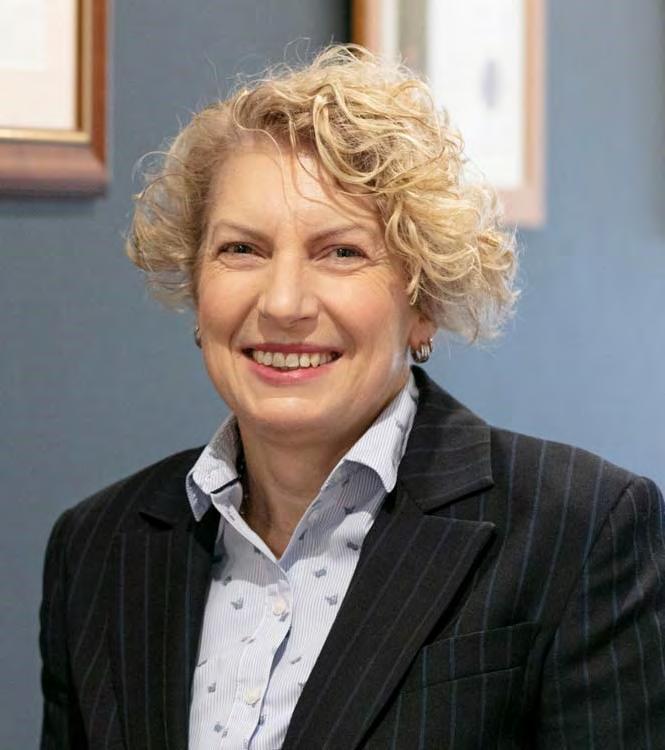
On 27 November 2020, New South Wales (NSW) surgeon Professor Raymond (Ray) Sacks was presented with an Educator of Merit Award for his exceptional contribution towards supporting Trainees and Specialist International Medical Graduates (SIMGs) for more than two decades. Professor Sacks was presented with the award at NSW Surgeons’ Evening, an event held as part of Surgeons’ Month. The popular local surgeon spoke of his
Professor Ray Sacks surprise and great honour at the receiving the award.
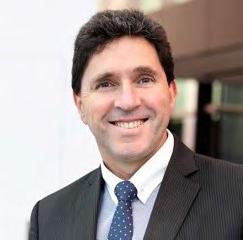
“I was totally shocked and never expected this. As an educator you do it for the love of teaching and not because you expect recognition, but even so, this award means so much to me and I am absolutely thrilled to receive it.” Professor Sacks initially migrated to Australia from South Africa as a SIMG (formerly referred to as IMG). On his arrival in Australia, the support and guidance that he received from across the medical profession left a lasting impression on him. “There were so many people and great mentors who helped me when I first arrived in Australia, which was greatly inspiring. When I achieved my Fellowship I felt that it was my turn to return the favour. “My initial start to teaching was motivated because I enjoy teaching, but the main reason I have carried on the way that I have is because I have a desire to give back. Now that I am a retired examiner, I feel that I can help Trainees in a different sense in terms of preparation for their exams and by offering practical advice and tips,” Professor Sacks said. During his career, Professor Sacks has published over 100 scientific papers in peer reviewed journals and 13 book chapters, and he has a particular interest in examining registrar burnout. One of his other many achievements include being awarded the Australian Society of Otolaryngology Head and Neck Surgery Medal for Outstanding Contribution to the Art and Science of Otolaryngology Head and Neck Surgery. He was also awarded the International Rhinology Society certificate for Distinguished Service to the
International Rhinologic Community in Brazil in 2015. On receiving the award, Professor Sacks said he would encourage anybody to become involved in teaching and other College activities. “I genuinely believe that, whatever you are doing, the more you give back, the more you get out of it,” he said. “It is not only a great joy to be seeing others achieving, but you also feel a great sense of self-satisfaction.”
Professor Phillip Truskett
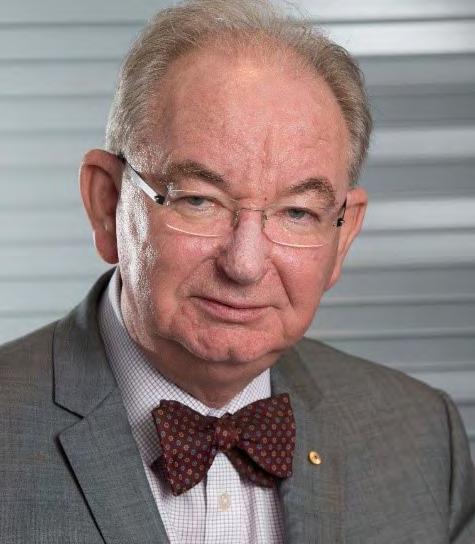
Read more from previous awardees on page 23. The Michael Donnellan Medal
Former RACS President Associate Professor Phil Truskett was recently awarded the Michael Donnellan Medal. The award recognises a NSW Fellow who has made an outstanding contribution promoting the art and science of surgery, but with particular emphasis on surgical leadership. It was established by the NSW Regional Committee in recognition of the contributions made to the College and to cancer care in NSW by Dr Donnellan. A former Chairman of the NSW State Committee between 1988 and 1990, Dr Donnellan was instrumental in securing the funding for the Albion Street offices of the College. He was also heavily involved with the establishment of breast screening services. Surgical News recently spoke with Associate Professor Truskett about what the award meant to him. Congratulations on your well-deserved award. How does it feel to be recognised by your peers in this way? I feel both embarrassed and humbled by this award. I am embarrassed because many years ago, when I was NSW Regional Committee Chair, the late Bev Lindley, then NSW Regional Manager, suggested we develop a NSW award to recognise the contribution that Michael Donnellan had made to the College and to surgery in NSW. Michael was a man who could only be described as ‘larger than life’. He was a fearless oncological surgeon with a particular interest in soft tissue tumours and testicular malignancy. He had an encyclopaedic knowledge of the literature and was probably the first person I saw who would put his case with evidence and not just eminence. His knowledge was matched with a surgical skill that allowed him to pioneer major oncological resections. I knew him as a student, a Trainee and as a young consultant before his untimely death. He was affectionately known as ‘the Don’ by all who knew him because of his strength of leadership. We decided that we would focus on his leadership qualities when defining this award. I am humbled to be given this award. I have never really looked upon myself as a leader and I suspect many would agree with me. The College is an extraordinary organisation and I am very proud to be part of it. I recall when I was a supervisor of training and I rang Bev to complain about the direction the General Surgery training program was heading. It seemed that the focus was heading towards narrow subspecialty training before Fellowship, which in my view was not fit for purpose. Bev responded by saying, “Phil, it’s not ‘the College’. It is ‘your College’. If you are unhappy it is your obligation to do something about it.” I know for sure I was not the only one she said this to. She was right and all Fellows should remember those words. It was a great pleasure for former NSW regional chairs to witness when Bev was awarded an Honorary FRACS for her contribution to surgery. We’d all had the lecture and benefited from her wise counsel. What motivates you, and what do you find most satisfying about being a surgeon? I think the strongest motivation we all have as surgeons is the shoulders we stand on. We have all experienced working and training with people who can only be described as inspirational. I accept that this is not universal, but hopefully the mentors we choose display the professionalism that we can only aspire to achieve. Professional identity is an emerging concept about which we must all be mindful. In the clinical setting, we are always on show. Those who wish to become surgeons are likely to emulate what we do and pay little attention to how we say they should behave. The most satisfying aspect of surgery to me is the trust that patients put in us to help them, and the support from our colleagues when we need it. What have been some career highlights? There are too many highlights to mention, but I think the great thing is I’ve never lost the motivation to go to work. There are highs and lows, but I have been very fortunate to work at Prince of Wales Hospital in a collegiate environment with great colleagues. Working as a surgeon is great fun. I often feel a little uneasy when people talk about work/life balance. It seems to denigrate the worth of work, as if it is a bad thing. I much prefer to think in terms of work/life integration to recognise the importance of activities outside of surgery to avoid a blinkered existence without experiencing outside influences. What advice would you offer to young aspiring surgeons? Never lose sight of those who have trained you and those you will train. The College is important as part of this process. It is important to understand that we are all judged by the behaviour of each individual surgeon. We have a very important social contract to uphold for the community we serve. It is a gift and not a privilege.


